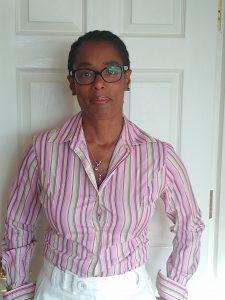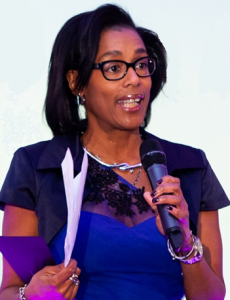Why are black women perceived differently when we wear our hair natural? Some have said that it is not professional, others that we are not beautiful. There is also the presumption of lack of intelligence. The one that really gets me is people who feel threatened by our natural hairstyles and the confidence it projects.

Knowing that some people feel the way they do about black women and their natural hair, you can imagine the lengths some black women go to enable themselves to feel safe in such a negative environment. When I was in early employment I decided to braid my hair much to my mother’s disapproval. Her words were “why did you do that to your hair? you can’t go to work like that”. Clearly she was articulating what she believed to be the attitudes of white people based on her past experiences. I was disappointed that she felt that way, but I continued to wear my hair in braids, however this changed when my role became client facing, suddenly it was my thought that I wouldn’t be seen as credible with natural hair.
There is evidence to suggest that hair discrimination is steeped in racism. In 2015, south Londoner Simone Powderly was offered a job on the condition she took out her braids, and two years ago, a black woman wanting to work for Harrods was told to chemically straighten her hair, Guardian July 2019.
There is also the case of an employer who told a black women on quite a number of occasions not to turn up for work with her natural hair. She was also encouraged to wear a weave to disguise her afro hair.
There is a distinct smell of ‘master and slave’ mentality here. What gives anyone the right to dictate to black women how they choose to wear their hair? This behaviour is deep rooted and has been going on for many years. I myself have been influenced by my mother’s words and that of others about how to present myself as a black women.

Recently I was asked to do a podcast at the time my hair was natural. It wasn’t in braids, it was in two twists which I call my in between hairstyle before I decide what route I wanted to take, braids on press. Because my hair is natural I have the option to decide how I wish it to look. Anyway, I didn’t know the podcast was going to be videoed. My host Leila McKenzie-Delis didn’t seem to see the angst on my face. I didn’t have any make up on either so I asked her to kindly let me rush up stairs to put some on. On reflection, I didn’t seem to be as concerned about the podcast, my hair presentation was my main concern. I asked myself, would I come across professional, will people take me seriously. I stopped myself thinking those thoughts and said, do you know what, its what I have to say that should be the most important. As we began talking I realised that all the important things I had to say would resinate with the audience, most would not be concerned about my hair
So why is straightened hair or wearing a weave the acceptable look for some white employers? Is it because it looks similar to their own hair? How many black women straighten their hair or wear a long weave to be accepted? My turning point came when I had braids in my hair and I had an interview for a Board position, I thought if they don’t like my natural look, then they are not the organisation for me. I was well presented and articulated myself well, that is all I thought should matter. I did get the post and I gave myself permission to continue taking this stance.
I decide how I want to wear my hair and it’s not dependent on any meeting I have or job I do, the decision is mine alone. My hair doesn’t diminish my intelligence, neither does it reduce my capability to provide a good service. Those employers who choose to take a negative stance on natural black hair need to be named and shamed.
The podcast with Leila Mckenzie-Delis at DialGlobal will be out mid/late September.
People to follow who do a lot of work to raise awareness of black hair, sharing positivity images and looking at black hair discrimination; Leika Lee – Founder Project Embrace on LinkedIn, @WorldAfroDay – Twitter